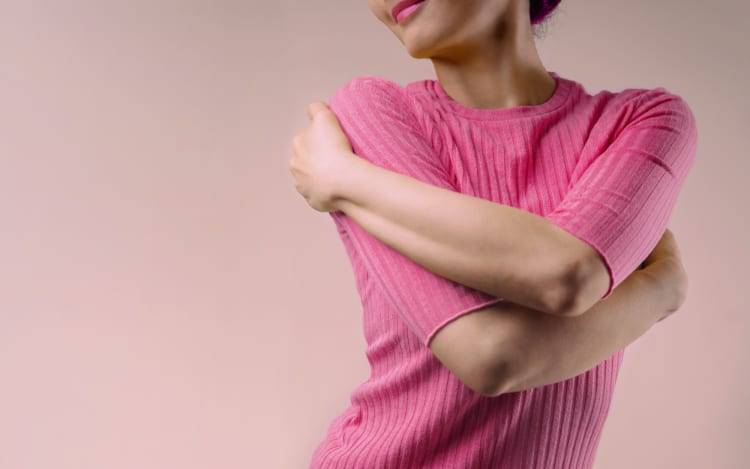Self-Care is Radical ✊🏿 ✊🏽 ✊🏾 ✊🏻
Taking care of yourself is an essential act.
For years now we've heard phrases like these tossed around: “these are unprecedented times,” “living in uncertainty,” “the world as we’ve never seen it”… and so on. As much as they may not even register with you any more, they’re really all too true, and the "new normal" is honestly anything but. Between political upheavals, a persistent global pandemic and its long-term effects, the largest movement against racial injustice our world has seen in decades (if ever) and all the pushback, plus the growing gap between red and blue states driven by homo- and transphobia, book bans, hysteria about drag queens, and oh yeah, the question of access to contraception and abortion — it can feel as though the news is stacking up at such a rate that we can’t finish processing one moment before something else weighs us down even further.
It’s overwhelming, and (to quote another one of those overused phrases) it’s why “now more than ever” we need to be practicing self-care — and not just any bubble bath and scented candle self-care, but radical self-care.
Radical self-care is the assertion that our own health — mental, physical, and emotional — needs to be prioritized in order for us to be able to better serve our communities and stand up in these, yes, unprecedented times.
The idea of radical self-care really took hold with the book A Burst of Light by Queer activist and Black author Audre Lorde, in which she describes self-care as a radical and political act. She wrote,
“Caring for myself is not self-indulgence.
It is self-preservation, and that is an act of political warfare.”
You may have also heard of the airplane / oxygen mask analogy — the idea that you must put your own mask on first before helping others. Radical self-care can work in this exact same way, and so we need to give ourselves permission to engage in those practices that help sustain us. Allowing ourselves to have and embrace pleasure and moments of peace will ensure that we can create the capacity we need to keep going. We cannot allow ourselves to feel shame about this.
Self-care can take many forms
Take a break.
Giving yourself a break from the news and the constant inundation of stress-inducing content on social media can be important. While we’re not saying to completely cut off your intake and lose touch with what’s going on, taking a step back can ensure that we do not burn out. This is especially important for those who are experiencing the brunt of these realities firsthand — such as members of the Black and BIPoC communities, undocumented folks, LGBTQIA+ people, particularly those who are trans and NB and their supportive families, low-wage workers, and others on the frontlines of the many battles we are facing today. Librarians, we see you!
Hype yourself up.
Affirmations can be incredibly powerful tools in self-care, especially if you regularly receive or witness messages of negativity towards elements of your identity. (For example, the Fat community got so tired of seeing their friends online complaining about quarantine weight gain, and now it's all about weight loss drugs.) Reminding yourself that your body is beautiful and worthy of celebration--no matter its size, color, restrictions, or any other physical attribute--can help counter the harmful messages you may be witnessing (or even those you learned to tell yourself. Time to unlearn that shame!).
Be gentle on yourself.
Try to remove the blame you may be tempted to take on for having a moment of pleasure. You have literally been surviving for years through a global crisis and layers of political ramifications and change!When taking a break, it can be hard to re-focus and re-center our energy in a way that allows us to truly relax for a while. Relaxing our physical bodies can be key to being able to lay mental and emotional burdens aside as well. This is where that warm bath really can make a difference: Let your body rest, exhale, and allow your senses to guide you. Maybe physical self-care means yoga or stretching; maybe it means sexual self-care via masturbation (with or without a vibrator), or a partner’s compassionate and sensual touch. Scent and texture might comfort and please you: oils, candles and other sensual things can transport you for a bit.
Check in with your body’s basic needs.
When was the last time you had a glass of water? Ate healthful food? Are you losing sleep checking the news on your phone all night? When we’re stressed, grieving, or processing, it is common to experience physical symptoms. Trouble getting sleep, feeling exhausted, having aches and pains can be your body trying to send you a message: it’s time to make taking care of yourself a priority.
Support each other.
If you turn to partners for support and succor, be gentle with each other. In trying times you might need and want different things, have different boundaries. Stay connected with communication, consent, and care. Understand that they need time for their self-care, too.
So, try giving yourself permission to engage in some radical self-care. Ask yourself what you can do to take care of yourself, and do it — even if it feels superfluous or self-indulgent. Participating in self-care isn’t selfish — especially when you’re doing it to keep yourself afloat. In order to create the capacity to take care of others, you have to make sure that you have enough for yourself.

